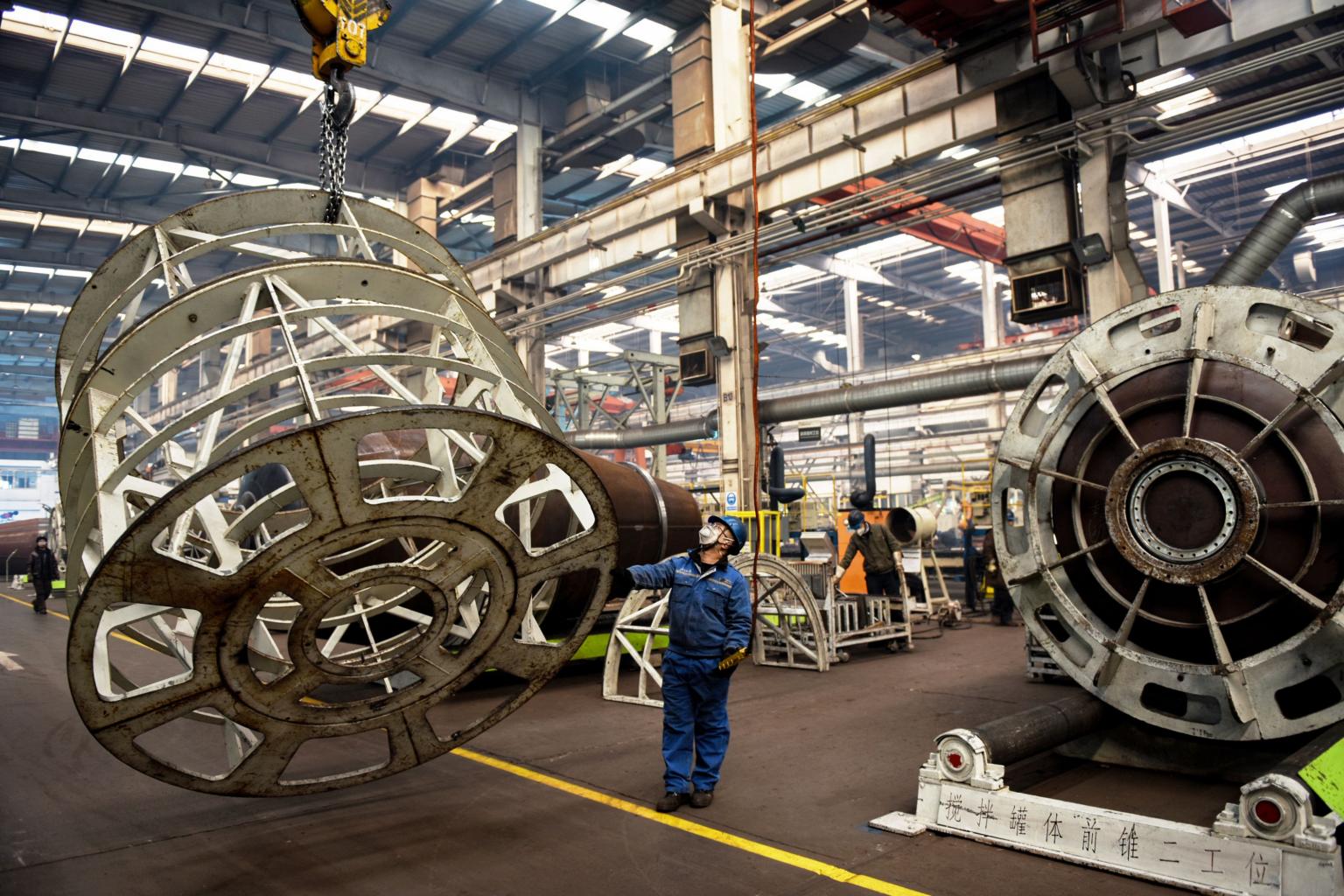China’s economy grows at slowest pace in nearly three decades
Sign up now: Get ST's newsletters delivered to your inbox

An employee works on a mixer truck production line at a factory in Zhangjiakou in China's northern Hebei province.
PHOTO: AFP
Follow topic:
BEIJING - China's economic growth in 2019 eased to its slowest rate in decades amid a bruising trade war with the United States and weakening domestic demand, official data showed on Friday (Jan 17).
But there was some positive retail sales and industrial output data and the commissioner of the National Bureau of Statistics (NBS) said more stimulus steps are expected this year.
Gross domestic product grew by 6.1 per cent last year, its worst performance since 1990, according the NBS.
While this is in line with the 6.0 to 6.5 per cent forecast by analysts, growth was down from 6.6 per cent in 2018. Total GDP last year was 99.08 trillion yuan (US$14.4 trillion).
China's economy had been slowing in the first three quarters of last year but stabilised at the end of the year, the NBS said.
The country has generally sustained a stable momentum of growth, said NBS commissioner Ning Jize at a press conference to announce the figures.
Domestic consumption will continue to be the main driver in China's economy for 2020, he added.
"Even though it's just the start of the year, we can see it will be close to 60 per cent of our GDP," he said.
"However, we should also be aware that the global economic and trade growth is slowing down," Mr Ning said.
There was an increase of internal and external risks in the coming year with "mounting downward pressure" on the economy.
In response, China would maintain a proactive fiscal policy and roll out more support measures this year, he said.

Mr Ning added that China does not deliberately pursue high economic growth and it is normal for gross domestic product (GDP) growth to fluctuate.
Data also showed that pork production fell by 21.3 per cent last year, an impact of the swine flu epidemic that swept across China, forcing the culling of millions of hogs.
Meanwhile, the number of babies born last year fell to its lowest rate since 1961, worsening a looming demographic crisis that could put heavy pressure on the economy in years to come.
About 14.6 million babies were born last year, a 4 per cent decrease from the year before. Births have been steadily falling with the exception of 2016, when there was a brief increase after the government scrapped its one-child policy, allowing couples to have two children.
SIGNS OF ECONOMIC IMPROVEMENT
December data released along with GDP showed a surprising acceleration in factory output and investment growth, while retail sales grew at a steady, solid pace.
Industrial output grew 6.9 per cent in December from a year earlier, the strongest pace in nine months. Analysts had expected growth to dip to 5.9 per cent from 6.2 per cent in November.
Fixed-asset investment rose 5.4 per cent for the full year, versus expectations for a 5.2 per cent increase, the same as in the first 11 months of the year.
Retail sales rose 8 per cent in December on-year, compared with forecasts for 7.8 per cent and November's 8 per cent.
Real estate investment rose 9.9 per cent in 2019, slowing slightly from 10.2 per cent in the first 11 months of the year. But growth in December slipped to a two-year low as authorities continued to clamp down on speculation to keep home price rises in check.
Beijing has been relying on a mix of fiscal and monetary steps to weather the current downturn, cutting taxes and allowing local governments to sell huge amounts of bonds to fund infrastructure projects.
Banks also have been encouraged to lend more, especially to small firms, with new yuan loans hitting a record 16.81 trillion yuan (S$3.3 trillion) in 2019.
The economy has been slow to respond, however, and investment growth had slid to record lows.
Even with additional stimulus and the trade war truce, economists polled by Reuters expect growth will cool further this year to 5.9 per cent.
-- With additional reporting by Reuters

